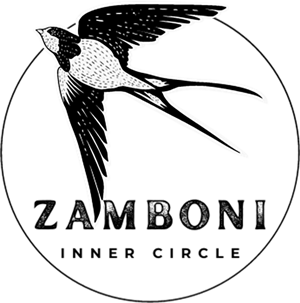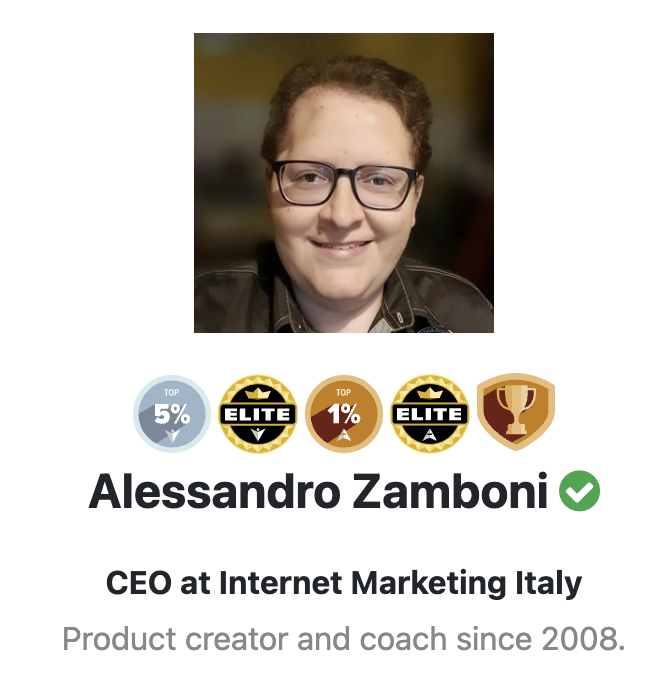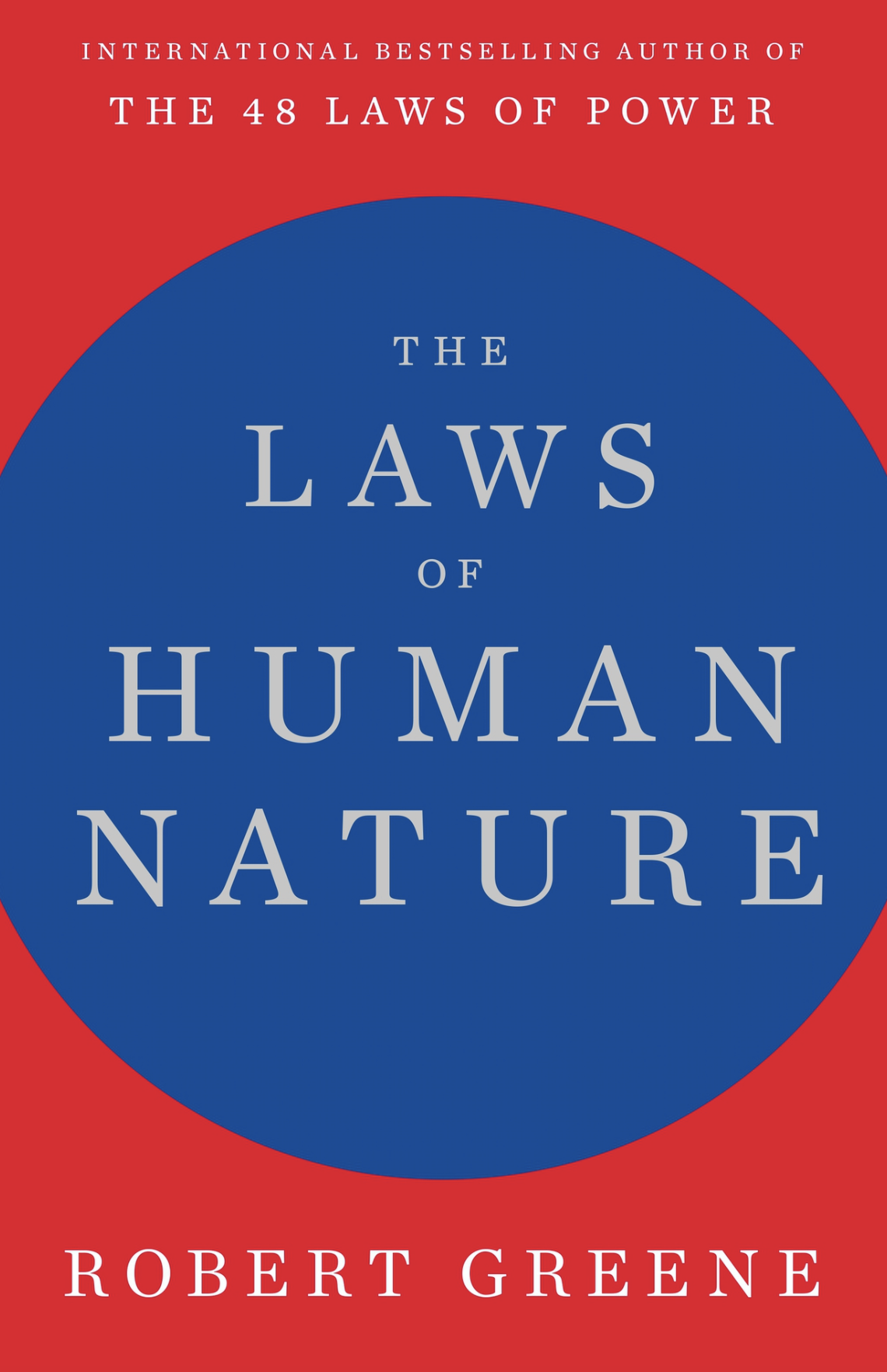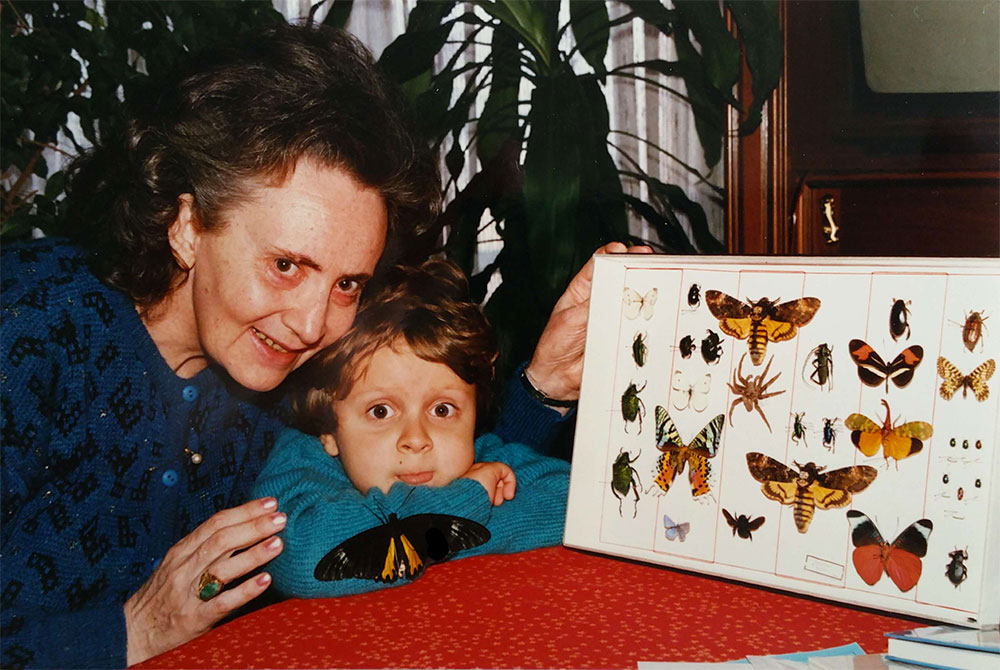We all have an idea in our mind of what makes an expert. For most of us, the idea of becoming one ourselves seems somewhat unattainable. Those “experts” are way too far out of reach for the average person, right? They’re the people who eat, sleep, and breathe their topic. They’ve spent a lifetime getting to where they are. That kind of success, that kind of expertise, is untouchable.
But, I challenge you to think about what expertise really is. What does it really mean to be an expert? Do you have to be near the grave after a lifetime of study before you can be considered an expert? Do you really need to spend 10,000 hours studying something to be an expert about it? I don’t think so— I think that’s very far from the truth, actually.
I’ll even go as far as to say that I believe anyone can become an expert on any topic. In many cases, you can achieve a certain level of expertise in as little as a month. It’s time to change your mindset about expertise. If you want to become an expert on a topic, you can.
We’re going to talk a lot about why you want to become an expert and what you hope to achieve. There has to be a benefit waiting for you on the other side of this or you’re not likely to have the level of dedication you need to have.

For now, though, we’re going to talk about what it means to be an expert. The definition you have in your mind of what an expert is, is a result of the experts you’ve known and the things you’ve been told about expertise. Much of what you’ve been told isn’t true at all.
Consider the experts you know in your life— particularly those who are experts in the area you’re interested in. What makes them an expert? If you can, research to figure out the journey of those experts you admire. Success leaves clues, and you’ll probably be surprised by what you find. You’ll probably find that there isn’t anything really different or special about these experts. They are people, just like you, who became dedicated to their topic, just like you can.
If you have a little voice in your head right now that’s telling you that you can’t do this, that you can’t become an expert, it’s time to quiet that voice. My goal is to inspire you and give you the tools you need to succeed. Loosen up your mind and let go of what you previously thought about expertise.
Experts Know More about Their Topic than Most
Now that you’ve looked to the experts you’ve admired and thought about their journeys, break things down a little more and consider why you perceive these people to be experts. What is it about them? Do they teach others about the topic? Have they published on the topic? Do they offer coaching, consulting, courses, or mentorship? Do they have an online presence?
Break it down like this. If you peek behind the curtain, it will probably become pretty clear that most people are perceived as experts simply because they’ve declared that they are an expert. They’ve put themselves out there in some way that makes it clear they know what they are talking about. They invent, innovate, and keep up with the latest news and trends.
It will probably also become very clear that there are different levels of expertise. There’s a certain mastery among the top experts in any field. Those are the people who seem to have an expertise that is unattainable. But, there are bound to be experts who are newer to the topic. These experts may not have as much experience or as much exposure. They just know more about the topic than the average person and have declared their expertise in some way.

Experts Innovate
I mentioned this above, but I really want to highlight it. Generally, experts don’t just know a lot about the topic. They are thought leaders. People turn to them because they know a lot about the topic and can demonstrate that.
Experts also innovate. They try new things others are afraid to try or don’t know enough about the topic to even come up with. Experts find new ways to do things, invent things, and think about things in whole new ways.
They don’t just fill their mind with information about the topic. They practice and invent and innovate. It’s through this steady practice and by making mistakes and having successes that true expertise is born.
Experts Are Who Others Turn To For Advice
There are plenty of experts who just keep to themselves. I’m going to guess that that’s not the type of expert you intend on becoming. You want to be an expert others turn to for advice. You want to be the first person people think of when they want to learn more about a topic.
Consider the experts you turn to first. They put themselves out there. If they say something is true, others tend to believe them. They are the teachers and the leaders.
There are certainly some experts you’re more attracted to than others. Just because someone is an expert doesn’t mean you’re ready to turn to them for advice. Not every expert is for everyone.
As you start to think about acquiring your own expertise, consider who your ideal audience is. How can you become the person they turn to first for advice? Emulate those you personally turn to.
Remember that people look up to experts. It doesn’t matter if they’re the top expert in the world or not. As long as the expert is helpful, knowledgeable, and well-practiced, they tend to get the respect of those in their audience. That’s exactly what you’re aiming for.
Teachers, Coaches, Mentors, and Consultants
There are certainly some experts who choose to keep to themselves. They might even go unknown as an expert, despite the fact that they know just as much, if not more, than any other expert out there.
I’ll assume that you don’t want to be an undercover expert. You have a goal in mind (that we’ll get to the bottom of, shortly).
Maybe you want to become an expert to start or grow a business.
Maybe you want to become an expert to improve your job prospects.
Maybe you want to become an expert for personal fulfillment or to help people in some important way.
Maybe you want to become an expert in order to establish authority, which you’ll be able to monetize in some way at some point in time (writing books, coaching, etc.).
That’s exactly why so many experts also become teachers, coaches, mentors, consultants, and authors. Experts, in many different fields, tend to want to share their expertise with others. Often, teaching and sharing information and helping in other ways is the best way to display your expertise.
Remember— expertise is a moving target. There is no one definition of what an expert is or isn’t. So, a lot of this comes down to perceived expertise. You don’t just want to know a lot about your topic, you want to be thought of an expert. That’s the best way to share what you know and get other benefits.
Consider the teachers, coaches, and mentors you have in your life. Think about the books you’ve bought on the topics that are important to you. You turn to those people for a reason. They are an expert in your eyes.
Does it matter if the author of the book you just bought only has a year or two of experience being an expert, if their information and experience helps you? Of course it doesn’t matter— as long as you learned something and what you learned was valid and valuable, that person was indeed the right expert for you at the time.

Becoming an Expert Will Serve You for a Lifetime
Whatever your goals are, becoming an expert in your field will serve you well for a lifetime. As an expert, you’ll have doors opened for you that never would have been open before.
Becoming an expert is a means to an end. There’s something you want to accomplish and you’re reading this right now because you have a strong feeling that your expertise would make your goals possible.
If you start today, you can quickly become an expert in your chosen field. This isn’t something with an endpoint. You’ll continue reading, researching, practicing, experimenting, and sharing throughout your life.
You’ll become more of an expert over time as you achieve mastery. In the meantime, you’re going to easily achieve a level of expertise that can serve you very well now and in the future— in as little as 30 days.
Being perceived as an expert instantly puts you above the rest. You’ll be able to create your own opportunities and choose your own path throughout life. You’ll be able to achieve your goals and help other people as well.
You might wish you could just snap your fingers and learn everything you need to know. There’s no getting around it— it’s a process. You need to be okay with starting small today and working your way up. You won’t have the same expertise in 30 days as someone who’s been practicing something for 10 years. But, with some smart methods and tools, you can get pretty darn close, depending on the topic.
Buckle up— you’re in for a wild lifelong ride.
Experts Never Stop Learning and Growing
Let’s talk a little more about this journey. You aren’t going to read a book or even 10 books on your topic and decide that you’re “done” learning how to be an expert. Yes, you can achieve a certain level of expertise pretty much right away. You can be perceived as an expert as long as you know more than the people in your audience.
But, you have to keep going. You have to get it in your mind right now that there’s no endpoint. You’ll be studying your topic and learning and growing for the rest of your life. You’re going to be a thought leader and a true expert in your niche. That means keeping up with the changes and innovating within your niche.
I’d go as far as to say that the true mark of someone who is not an expert is that they think they know it all. A true expert knows that there is no way to know it all. A true expert knows what they don’t know.
If someone, even an expert you currently look up to, tries to tell you that they know everything and that they have all the answers, it’s time to be skeptical of them. A true expert sometimes doesn’t have all the answers. They know that there are others out there who know more about a specific sub-topic of expertise than they do. A true expert looks forward to practicing things and making mistakes. A true expert is okay with telling you that they will research a certain question and get back to you with an answer, because they know where and how to do the research.
That’s what you need to do. You’ll quickly gain the respect of your audience if you’re very honest and upfront in everything you do. There’s no need to put on a front and ‘fake it until you make it.’ You need to put your all into developing your expertise so you can do a service to yourself and your audience.
Prepare yourself for a lifetime of learning. Ideally, you should love your topic. There should be a passion there that drives you to keep learning. You probably won’t be able to become a top expert in a topic you don’t care that much about. If your motivations and drive aren’t in the right place, you might start off okay but quickly lose interest.

I think that’s why there are so few true experts out there. Many people are afraid to follow their passions and achieve their goals as a result of following their passions. People often chase expertise for the wrong reasons. They see the money, fame, and respect others are getting and want that for themselves. The trouble is that they weren’t really ever in tune with that topic. They didn’t have the right goals and motivations.
If you can focus on a topic that you are passionate about and marry that with the goals you have for your life, business, work, family, and everything else, you’ll probably be very successful. You’ll be motivated to push through even when the going gets tough.
You’ve no doubt heard the expression that success doesn’t happen in a straight line. You have one plan for your life. You plan to become an expert in your field and achieve all of your goals. But, you have to know that you’re going to have a lot of ups and downs along the way.
Sometimes, you will lose steam for your topic. Sometimes, all the work will damper your passions somewhat. You need to be prepared for that and keep your eye on the prize.
Start small and work your way up. You can absolutely call yourself an expert on your chosen topic, and for many topics, you can do so within 30 days of avid study and dedication. The first month will be easy— it’s keeping things going where it gets difficult.
Prepare yourself for the long haul, even as you’re lured by the thought of becoming an expert in the quick and easy way I’m going to show you. I could easily sell many more copies of this book if I promised that you could become an expert in a day or something like that. But, I’m most interested in helping you live the kind of life you want to live. That means, I’m going to help you reach those quick goals— I’m going to teach you amazing ways to become a true expert faster than you ever thought possible. But, I’m also going to help prepare you for a lifetime of success.
Revisiting the Word “Expert”
Hopefully, some of your preconceived notions about what expertise means have been broken down. Next, we’re going to talk a little more about the word and how to achieve it.
The word “expert” might mean something different to you than it does to the next person. Someone else might not consider someone an expert unless they have decades of experience under their belt. I think we can agree that that’s faulty thinking— does someone who’s been avidly studying a topic for 5 years have nothing to say?
If you’ve been avidly studying something for a month, reading books, frequently topical forums, working with an expert mentor, practicing, etc., do you have any insight to offer to the person who’s just getting started?

I think you do. And I think it’s perfectly reasonable to call yourself an expert if you have dedicated yourself and have something to offer to your audience. Are you more expert than a newbie? Can you smooth their path and help them? Can you answer their questions? Then, to them, you are an expert.
It’s so important to keep it in your mind that there are different levels of expertise. Eventually, you want to reach the level of mastery. But, you can easily reach those earlier levels very quickly— even within the month.
There’s a fairly well known concept many people think of when it comes to expertise. You can think of it on a scale from 1-10.
Level 1 would be the total beginner— someone who probably wouldn’t be considered much of an expert, if at all. They know more than someone at a level 0, of course… but those people aren’t interested in the topic.
Level 10 would be the top expert— a master of the topic. This would be the very best of the best. This is the level you would strive to reach, someday. You would never reach it in a few hours or even a few years. This would be part of your lifelong journey.
You probably fall somewhere in the middle. At the end of the jumpstart 30-day journey you’re going to take, you’ll fall even higher on the scale.
A level 5 can mentor a level 1, right? A level 2 or a 3 could mentor a level 1, but the level 1 student would quickly catch up to the level 2 or 3 mentor.
This scale can really help you wrap your mind around what expertise really is. It’s no good to be an expert in a vacuum. You’re probably not interested in becoming an expert just for your own edification. You’re interested in becoming an expert so you can help people, further your life, business, career, or whatever it is you’ve set your sights on.
Should you wait until you’re an expert level 8, 9, or 10 before you start going after your goals? Definitely not. You can start right away. Dedicate yourself to this. If you work it, you can truly become an expert, and quickly.
You’ll be doing yourself and your audience a disservice if you wait. There are people who there who need and want your help. You have goals that you’ve been sitting on for way too long. Now’s the time to really go after them.
In fact, you’ll be doing yourself a disservice also if you wait. When you’re at the lower levels, and trying to help others, you’ll be asked questions that you won’t know the answers to. Finding the answers will move you up the ladder quicker than any other means.










